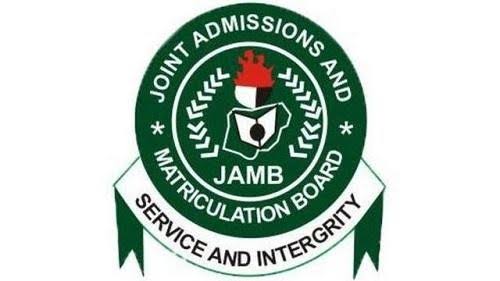The Joint Admissions and Matriculation Board (JAMB), Nigeria’s official examination body responsible for university admissions, has once again made headlines by screening 176 underage candidates during the 2025 Unified Tertiary Matriculation Examination (UTME) registration exercise. This move has reignited discussions on the need for a comprehensive policy review concerning the age requirements for admission into tertiary institutions across Nigeria.
This development highlights the ongoing challenges in Nigeria’s education system — from early school completion to the increasing pressure on students to gain early university admission.
Background: JAMB’s Role in Regulating Admissions
JAMB (Joint Admissions and Matriculation Board) plays a central role in ensuring fair and transparent admission into universities, polytechnics, and colleges of education across Nigeria. Every year, millions of candidates register for the UTME, which serves as the major entry examination into tertiary institutions.
To maintain academic standards, JAMB enforces policies including minimum age requirements, admission quotas, and cut-off marks. According to the Board, candidates must be at least 16 years old at the time of admission into any higher institution in Nigeria.
The Issue of Underage Candidates
Despite repeated awareness campaigns, several candidates below the required age continue to participate in UTME. In the 2025 screening process, JAMB discovered 176 underage candidates, raising fresh concerns about parental and institutional compliance with admission policies.
These underage candidates were reportedly identified during the data verification exercise, which involves reviewing biometric and demographic details of UTME registrants. JAMB emphasized that such candidates cannot be admitted into Nigerian universities, as doing so violates federal education policy and undermines tertiary learning standards.
Why Are Underage Candidates Increasing?
Several factors contribute to the rising number of underage candidates in Nigeria’s education system:
- Early School Enrolment: Many children are enrolled in nursery and primary school earlier than the recommended age.
- Accelerated Promotion: Some schools promote students rapidly without proper evaluation of maturity.
- Pressure from Parents: Parents often push their children to finish school quickly and secure early university admission.
- Weak Enforcement: Despite JAMB’s policy, many secondary schools do not verify candidates’ ages properly before registration.
This trend, according to education experts, poses a threat to both academic performance and psychological readiness of students entering tertiary institutions too early.
JAMB’s Response and Policy Review Proposal
In response to the discovery, JAMB has intensified its screening and verification process and is calling for a national policy review on education age requirements.
Dr. Fabian Benjamin, JAMB’s spokesperson, explained that while the Board does not intend to deny any candidate the opportunity for education, it must uphold policies that promote maturity, readiness, and quality learning.
JAMB also hinted at collaborating with the Federal Ministry of Education, State Ministries of Education, and secondary schools to ensure that age-related policies are effectively implemented from the basic education level.
Education Stakeholders React
Education experts, parents, and policymakers have expressed mixed reactions.
- Some stakeholders argue that the minimum age policy should remain at 16, emphasizing that tertiary education requires a level of maturity beyond academic intelligence.
- Others believe that exceptional students who demonstrate intellectual capability should not be limited by age restrictions.
However, most agree that education reform must address systemic issues such as curriculum review, teacher training, and consistent enforcement of age and admission policies.
Consequences for Underage Candidates
JAMB clarified that the affected underage candidates will not lose their registration completely. Instead, their records will be kept until they reach the approved age for admission. This ensures fairness while maintaining compliance with federal education standards.
Additionally, JAMB advised parents and guardians to allow their wards to complete their education at the appropriate pace, emphasizing that maturity and life experience play a crucial role in academic and social success in higher institutions.
Call for Policy Harmonization
The recurring cases of underage candidates have shown the need for policy harmonization between basic and tertiary education levels. Many experts suggest that the Universal Basic Education (UBE) curriculum should be aligned with JAMB’s admission framework to ensure smooth transitions that comply with age and academic requirements.
This harmonization, they argue, will prevent students from being rushed through the system and encourage better educational outcomes.
The Bigger Picture: Reforming Nigeria’s Education System
The issue of underage admission is just one symptom of deeper challenges in Nigeria’s education system. From overcrowded classrooms to inadequate infrastructure and curriculum misalignment, the system requires urgent and coordinated reforms.
Stakeholders believe that JAMB’s vigilance in screening underage candidates is a step toward restoring order and credibility in tertiary education. However, they also call for stronger partnerships between government agencies, schools, and parents to ensure that educational policies are both practical and enforceable.
What This Means for Future JAMB Candidates
For future UTME candidates and parents, the message is clear:
✅ Candidates must be 16 years and above before seeking admission.
✅ Schools should verify candidates’ birth certificates before registering them for JAMB.
✅ Parents should prioritize readiness and maturity over speed.
✅ JAMB will continue to enforce strict age and identity verification to uphold standards.
Conclusion
JAMB’s screening of 176 underage candidates in 2025 has sparked a national conversation on the need for education policy review in Nigeria. While the move has received widespread attention, it also serves as a reminder that education is not a race but a structured journey that requires readiness, maturity, and proper guidance.
As Nigeria strives to improve its tertiary education standards, stakeholders must work collectively to ensure that admission policies, age requirements, and curriculum structures align for the benefit of future generations.



